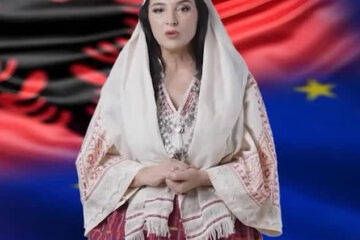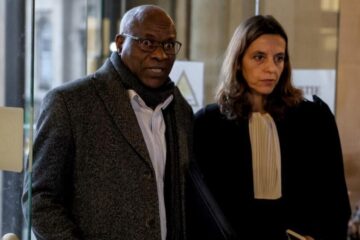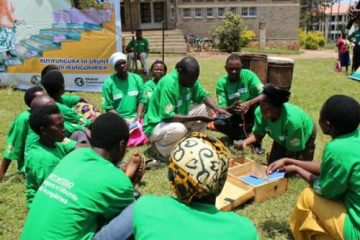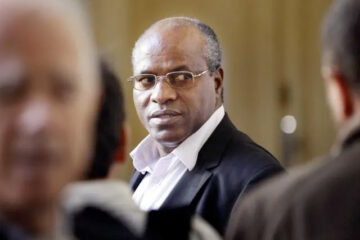Paris, 17 September 2025 (from Kigali) – The trial of Rwandan doctor Sosthène Munyemana resumed at the Court of Assizes of Appeal in Paris, where he provided a detailed account of his personal and professional life, as well as the circumstances surrounding his role during and after the 1994 genocide.
Opening the session, the presiding judge addressed procedural matters, ensuring that all parties received updated schedules and that documents submitted as evidence were formally transmitted to all participants. A key issue arose concerning a witness, Mr. Audouin-Rouzeau, who could not travel to testify. While civil parties requested the use of previously recorded testimony, the court emphasized that prerecorded statements could not replace live testimony, citing the right to a fair trial.
Munyemana’s interrogation began at 9:34 a.m., focusing on his background rather than the substance of the case. Born in Sangira, Rwanda, in 1955, he described his upbringing in a modest farming family as the third of four siblings. He recounted early experiences that inspired his career in medicine, including witnessing his mother suffer a miscarriage. Munyemana explained the cultural significance of Rwandan names and shared details about his education, which took him through several institutions, sometimes dictated by religious affiliation rather than choice.
He spoke candidly about his professional achievements, including his work as a gynecologist and obstetrician, teaching responsibilities, and leadership roles at hospitals in Butare and Ruhengeri. He emphasized his commitment to returning to Rwanda despite opportunities abroad, citing a desire to serve women and local communities.
Munyemana also recounted his experiences during the 1994 genocide, highlighting acts of solidarity he and his family extended to Tutsi neighbors and the loss of close friends and family members. He detailed the complex social dynamics of rural Rwanda, where he maintained friendships across ethnic lines.
The witness also addressed his personal life, describing his meeting and marriage to his wife in the late 1970s, emphasizing that ethnic identity was not a factor in their union. He spoke of balancing his professional responsibilities with family life and maintaining a reputation as a respected and moderate figure among colleagues.
Throughout the hearing, questions also touched on Munyemana’s detention, the Gacaca judicial process, and previous asylum applications in France. Civil parties and defense lawyers alike explored his interactions with local populations, professional conduct, and responses to accusations relating to the genocide.
The court adjourned briefly before resuming later in the afternoon to continue witness hearings and review documentary evidence, including historical accounts and expert analyses on the genocide.
The trial is expected to continue over the coming weeks, with the court carefully considering both testimonial evidence and procedural safeguards.








